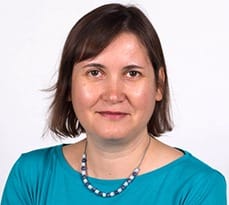CEOs of firms facing poor financial performance consult internal advisers who are less likely to offer fresh insight, says comprehensive study co-authored at Cambridge Judge Business School.
Chief executive officers receive plenty of advice – from company boards, employees, financial analysts and others – and are paid the big bucks to sift through such recommendations to make tough decisions.

But how do CEOs actually receive all this advice? That’s the topic of a paper published in the Journal of Management co-authored by Professor Yasemin Kor of Cambridge Judge Business School, which is based on a review of 65 studies in high-impact academic journals or which have been heavily cited.
Among the review’s conclusions: CEOs of companies facing poor financial performance are particularly prone to seek advice, but they show a preference for internal advisers who are less likely to offer fresh insight and more likely to confirm their previous views. And when they do ask for external advice, they tend to confide in “trusted, friendly contacts” or people with similar backgrounds.
The management implications of such “confirming” behavior are clear: “If CEOs have not already surrounded themselves with advisers who have a diverse set of perspectives and ideas, it may be too late to seek these in desperate times,” says the article.
The review also found that CEOs rely more on external contacts when their companies pursue innovation-based strategies or attempt to differentiate from rivals, because such contacts are more apt to provide a diverse set of experience and more novel information. However, CEOs prefer internal contacts for efficiency-based strategies and in stable environments, as success for such a strategy is based more on internally driven control systems.
“When CEOs seek advice more from sources cognitively distant from themselves, enabling them to bring in novel perspectives and knowledge, their firms pursue strategic change at a higher rate, while insular sources of advice (internal or external) promote strategic inertia,” the paper says.
The review also finds that although CEO advice seeking from the executive team and directors has positive effects, such effects are stronger when there is a fit between the firm’s strategic needs and the adviser expertise.
“There is a large body of literature on how CEOs seek advice, but the research has been disconnected and dispersed among different management streams, so this paper synthesizes these research findings to provide useful analysis,” says co-author Yasemin Kor, Beckwith Professor of Management Studies at Cambridge Judge Business School. “We think this synthesis can be useful to CEOs, boards of directors and others in thinking about the sort of advice CEOs seek out – or don’t seek out – and how that can affect firm performance.”
The review defines CEO advice seeking as “any interaction of the CEO with another person or group ostensibly directed at accessing knowledge deemed helpful for dealing with a problem.”
The review says there is a need for further research on the “microlevel” dynamics of CEO advice seeking in order to better understand the outcomes that it yields. Both in-depth case studies and well-designed laboratory experiments may help bridge this gap.
The authors say there are implications from CEO advice-seeking on the health and well-being of chief executives. Stress is endemic to CEOs, and reaching out for advice can be an important coping mechanism during times of work or personal crisis.
“Executives are predisposed to taking action and multitasking; they are always on the move and rarely have time for reflection or introspection,” the paper says. “Advice interactions can be a substantial relief for CEOs from the intellectual and psychological standpoints. Sharing concerns and discussing difficult aspects of business and personal matters may help to relieve some of the inherent managerial anxiety.”
The paper – entitled “CEO advice seeking: an integrative framework and future research agenda” – is co-authored by Dr Shenghui Ma of the School of Management at Fudan University in China, Professor Yasemin Kor of Cambridge Judge Business School, University of Cambridge, and Professor David Seidl of the Department of Business Administration at the University of Zurich.


